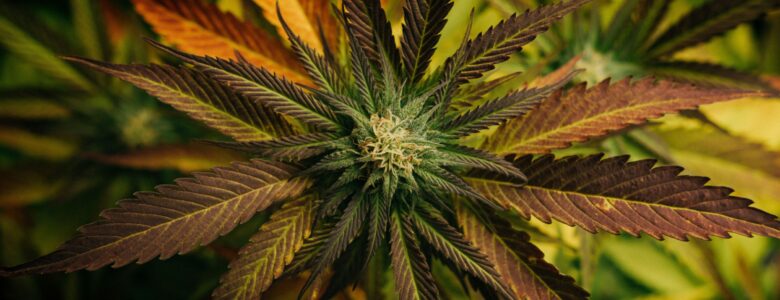Last June, after that the Foundation’s Director General and Founder exposed publicly his opinion on the proposal of the political parties to discuss the legalisation of Cannabis for recreational and therapeutic purposes, staff, volunteers and present & past service users at OASI Foundation, also concerned about the underhanded way the subject matter regarding the Legalisation of Cannabis for Recreational Use is being publicly and politically handled declare, that:
While cannabis recreational usage is ostensibly being excused by the argument that certain people, suffering from certain conditions, could personally benefit from its use, consequently this justifies its legalisation and easy access on the open market even for recreational use. Such a rationale is defective and deviates into a perilous path to follow. We are well aware that derivatives from various natural products have always, through laboratory exploration and proper tests, been produced and made available, under control, for treatment of various medical conditions. Modern medicine is rich in such occurrences and we believe that cannabinoids derivatives could also be produced in a similar serious, medical setting and professional manner.
OASI Foundation’s concern relates to the negative health effects steps to unrestrained legalized moodaltering substances may have on our children’s future quality of life and that of our society at large. The following are our main concerns:
- Legalization of Cannabis use is a foreboding subject matter that requests first and foremost to be exposed for discussion amongst credited professionals and their clients/patients. These, through their social, psychological and physio-biological professional research, data, and experience should lead the direction of discussions and decision making on a public and political platform.
- Professionals in this field have had to deal with too many persons who, in their pre or early teens, started off smoking nicotine and consuming alcohol (both legal drugs) to end up taking a downward spiral into addiction, ruining their lives, that of their families and affecting society at large. Legalizing cannabis will intensify further this downward spiral.
- If smoking and alcohol are being severely discouraged nowadays, wouldn’t it be foolish to legalise other toxic or mood altering substances?
- We at OASI are aware of the misleading perception and mind-set that, as long as a person does not make use of heroin, there is no harm done in smoking cannabis or doing a line of cocaine every now and then. Therefore, the false justification follows, as cannabis does not kill physically, there is no harm done in its free use. Notwithstanding all this, it is common knowledge that smoking cannabis kills emotions and feelings towards oneself and others and thus risks the well-being of the user and society at large.
- Rather than legalizing drugs, the state should be more proactive in asking why our new generations are in this critical situation of choosing escapism instead of facing realities. The Education, Health and Social Ministries should therefore take up their responsibilities and truly lead by example to divert and invest their resources, human and financial, to do the required research and present academic solutions towards the understanding of the reasons behind such a thoughtless use of uncontrolled mood-altering substances simply to get an artificial good feeling in their lives.
- We feel that legalization, will be interpreted that there is no harm for a person to do marijuana – in all its forms and modes of ingestion, something which is obviously wrong. On the contrary, society, through those responsible for its good administering, has the responsibility to protect persons from myriad forms of poverty which cannabis can lead to. This should be done also, out of justice towards those who work and strive so hard to sustain our present and future generations through their vocational profession and their financial contributions towards the coffers of the state.
The above concerns are not merely based on our personal or organisational experiences but also on worldwide empirical studies as those referred to underneath.
Links of research:
- Update of Cannabis and its medical use by Bertha K. Madras
The Effect of Medical Marijuana Laws on Crime: Evidence from State Panel Data, 1990-2006 by Robert G. Morris; Michael TenEyck; J. C. Barnes & Tomislav V. Kovandzic: http://journals.plos.org/plosone/article?id=10.1371/journal.pone.0092816 - EMCDDA – Harm reduction policies for cannabis by Wayne Hall & Benedikt Fischer
- UNODC World Drug Report 2015
- SPAD 2015 by Sedqa
- Age of Onset of Marijuana Use and Executive Function by Staci A. Gruber, Kelly A. Sagar, Mary Kathryn Dahlgren, Megan Racine & Scott E. Lukas : https://www.ncbi.nlm.nih.gov/pmc/articles/PMC3345171/
- Considering Cannabis: The Effects of Regular Cannabis Use on Neurocognition in Adolescents and Young Adults Krista M. Lisdahl & Natasha E. Wright & Christopher Medina-Kirchner & Kristin E. Maple & Skyler Shollenbarger: https://www.apa.org/news/press/releases/2014/08/consideringcannabis.pdf
- EMCDDA : http://www.emcdda.europa.eu/attachements.cfm/att_53392_EN_emcdda-cannabis-monvol2-ch16-web.pdf
- http://findings.org.uk/PHP/dl.php?file=cannabis_treat.hot&s=eb
- EMCDDA: http://www.emcdda.europa.eu/publications/monographs/cannabis
- National institute on drug abuse – Early-Onset, Regular Cannabis Use Is Linked to IQ Decline by Kathryn Calkins: https://www.drugabuse.gov/news-events/nida-notes/2013/08/early-onsetregular-cannabis-use-linked-to-iq-decline


